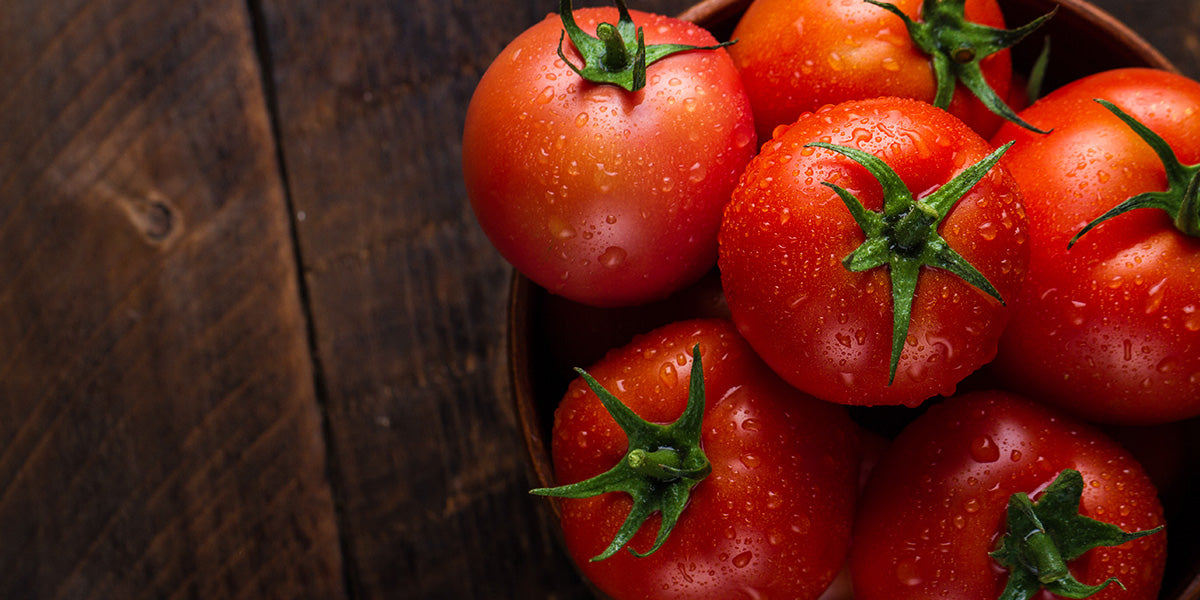
Why Are Tomatoes Red?
You may not be familiar with lycopene, but she’s one antioxidant that deserves some stage time. Let’s start with Act One and familiarize ourselves with this leading lady of the carotenoid clan. She’s feisty, she’s fierce, and she will paint this town red. At the surface, lycopene is an antioxidant who shows up in all your favorite red-pink fruits: watermelon, grapefruit, papaya, and of course, tomatoes. But unlike her green and orange antioxidant cousins, lycopene can really stand up to heat and only gets stronger when the pressure is on.

Now on to Act Two, where this nutrient headliner shows us just how amazing she is and wins over our hearts forever.
6 amazing facts about lycopene
- Lycopene increases in cooked tomatoes. Common sense would tell you that fresh fruits and vegetables tend to have more nutrients than their cooked counterparts. But tomatoes throw that theory out the window. Research shows that when tomatoes are cooked—as happens when you make tomato sauce—the lycopene content skyrockets. In fact, cooked and condensed tomato products, like pasta sauce, marinara sauce, sun-dried tomatoes, and tomato paste, contain 10 to 15 times more lycopene than a fresh tomato.
-
Lycopene can protect you from sunburn. Though eating lycopene-rich foods shouldn’t really replace your good sunscreen-wearing habit, there is promising research that people who consistently get lycopene from foods a few times a week have up to 50% less skin redness after exposure to UV rays than those who don’t. Lycopene has also been shown to reverse UV-causing sun damage by boosting levels of procollagen in the skin.

- Lycopene is good for your eyes. Research shows that getting plenty of this powerful antioxidant may prevent or delay cataracts and reduce center vision loss known as macular degeneration.
- Lycopene can fight prostate cancer. A study of more than 40,000 men showed that those who ate two or more servings of lycopene-rich pasta sauce per week were 30% less likely to develop prostate cancer. Another study connected moderate daily lycopene (like what you’d get in ¼ cup of pasta sauce) to improved fertility in healthy young men by 40%.
- Lycopene is like natural ibuprofen. Nerve pain can be hard to treat naturally, which is why so many people pop over-the-counter painkillers like acetaminophen, aspirin, and ibuprofen. But lycopene can help in this realm, too. Several studies show positive connections between lycopene intake and reduced neuropathic pain.
- Lycopene makes tomatoes red. Yes, we can thank our star for making tomatoes such a stunning hue of rose red. Lycopene is a carotenoid pigment, and the riper the tomato, the more lycopene it contains.

Jessie Shafer is a registered dietitian-nutritionist, team member at The Real Food Dietitians, former magazine editor, and busy mom of two who loves to pretend vegetables are Broadway stars.

